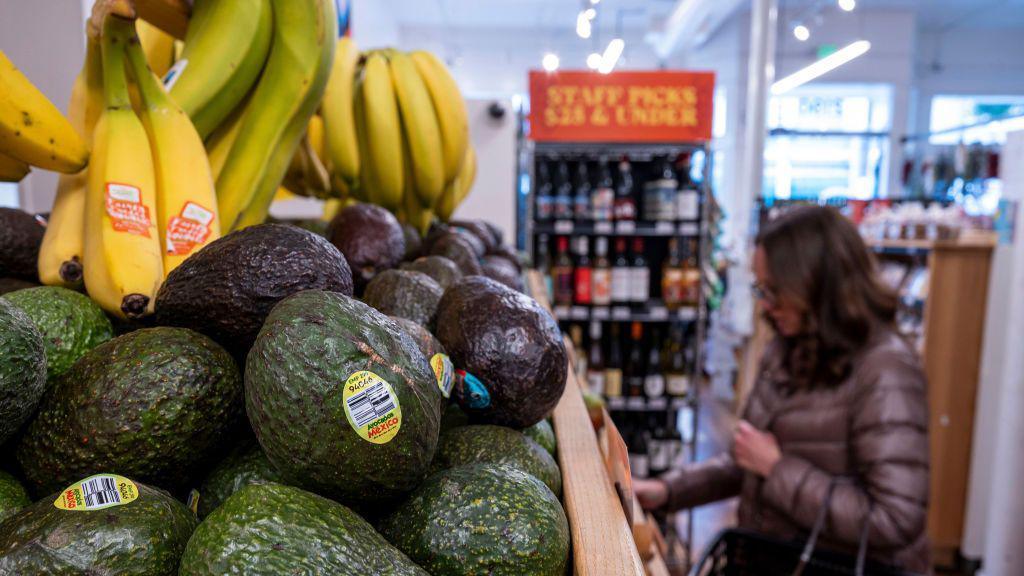President Donald Trump’s recent decision to lift tariffs on over 200 products represents a notable political shift, signaling a significant departure from a core tenet of his administration’s trade policy.
The move, which had been urged by critics for some time, comes as the president focuses on addressing cost-of-living concerns, following polls indicating that affordability issues are negatively impacting White House approval ratings and Republican electoral prospects.
Industry groups, such as the Food Industry Association (FMI), have lauded the tariff rollback – which impacts popular items like bananas and coffee – as a “critical step” toward improving affordability, with other business organizations echoing similar sentiments.
However, the tangible impact of these tariff removals may not be as substantial as the political symbolism suggests.
According to an October projection by Yale’s Budget Lab, President Trump’s tariffs – currently a baseline 10% tax on imports, with additional levies on various trading partners – were expected to increase food prices by 1.9% in the short term.
This impact is noteworthy, considering the relative stability of U.S. grocery prices historically, which rose by an average of only 2% annually between 2013 and 2021.
While the White House order does not eliminate tariffs on all food products, it does remove levies on specific items like coffee, spices, and tropical fruits such as bananas, for which U.S. production is minimal or nonexistent.
Economists and businesses anticipate that the order will contribute to price reductions, especially for these types of goods, and that these changes should be seen relatively quickly.
Anthony Serafino, president of EXP Group, a New Jersey-based fruit importer and distributor, anticipates lowering prices in the coming weeks, after previously increasing them to offset new tariff costs totaling millions of dollars.
He notes that it may take several weeks for consumers to observe the difference, as existing pre-tariff inventory is sold. However, he expects the decision to provide significant relief.
“We were simply passing on the costs. We will not artificially inflate prices solely for the sake of maintaining higher prices,” he stated.
Nonetheless, the overall effect on household grocery budgets may remain relatively modest.
While the U.S. relies heavily on foreign supplies in certain categories, like fresh fruit and seafood, imports typically account for less than 20% of total food and beverage purchases by Americans, according to the USDA.
Furthermore, many food imports from Mexico – the largest foreign food supplier to the U.S. – were already exempt from tariffs due to existing White House concessions for goods covered under the U.S., Mexico, and Canada free trade agreement.
“You will certainly see an impact on specific products,” stated Sean Cash, a professor of food economics at Tufts University. “However, I doubt we will see a significant decrease in the average price of groceries.”
Food companies continue to face higher costs from tariffs on materials such as aluminum, used in canned goods. Additionally, items such as wine, cheese, and palm oil were not included in the tariff exemptions.
Recent surges in food prices also reflect factors unrelated to tariffs, including rising labor costs and droughts, which have impacted coffee and cattle supplies.
“If we eliminate trade barriers on food items and food commodities, would that result in cheaper food in the U.S.? To some extent, yes, but not to a significant degree, as a substantial portion of our purchases are for services,” explained Daniel Sumner, a professor of agricultural economics at the University of California, Davis, citing costs such as border inspections, washing, trucking fees, and supermarket worker wages.
Overall, grocery prices increased by 2.7% over the 12 months leading up to September.
While still significant, this is considerably lower than the sharp increases observed in 2022 and 2023, when grocery prices soared by 11.4% and 5%, respectively.
Trump administration officials have characterized high food prices as a problem inherited from the Biden administration, cautioning that it will take time to rectify the situation.
In a briefing for reporters regarding the new tariff exemptions, officials acknowledged that the effects may be limited, emphasizing that reducing prices in grocery aisles was the objective, but not a certainty.
Walmart, Target, and Kroger have not responded to requests for comment.
Economists suggest that food prices tend to fluctuate more than other goods, suggesting some relief is likely, particularly given the heightened attention on the issue.
However, Sylvain Charlebois, director of the Agri-Food Analytics Lab at Dalhousie University in Canada, cautions that current high prices are likely to influence future decisions, comparing the dynamic to the effect a “tide” has on a dock.
“The tide rises, leaving a mark on the dock that remains,” he said. “Even if tariffs are removed, this ‘mental mark’ will persist, and the industry tends to operate with that mark in mind.”
The US has justified its air and naval campaign as necessary to fight drug smuggling into the US.
The former FBI director is facing federal charges after Donald Trump called for his prosecution.
The Mission: Impossible star received the honorary prize after being nominated four times for an Academy Award.
Prosecutors say Indiana’s self-defense, stand-your ground law did not excuse the shooting.
Joseph Emerson blamed his behaviour on a mental breakdown triggered by hallucinogenic mushrooms.

